
Sid Meier's Civilization is a 1991 turn-based strategy 4X video game developed and published by MicroProse. The game was originally developed for MS-DOS running on a PC, and it has undergone numerous revisions for various platforms. The player is tasked with leading an entire human civilization over the course of several millennia by controlling various areas such as urban development, exploration, government, trade, research, and military. The player can control individual units and advance the exploration, conquest and settlement of the game's world. The player can also make such decisions as setting forms of government, tax rates and research priorities. The player's civilization is in competition with other computer-controlled civilizations, with which the player can enter diplomatic relationships that can either end in alliances or lead to war.

Sidney K. Meier is an American businessman and computer programmer. A programmer, designer, and producer of several strategy video games and simulation video games, including the Civilization series, Meier co-founded MicroProse in 1982 with Bill Stealey and is the Director of Creative Development of Firaxis Games, which he co-founded with Jeff Briggs and Brian Reynolds in 1996. For his contributions to the video game industry, Meier was inducted into the Academy of Interactive Arts and Sciences Hall of Fame.

Sid Meier's Civilization II is a turn-based strategy video game in the Civilization series, developed and published by MicroProse. It was released in 1996 for PCs, and later ported to the PlayStation by Activision.
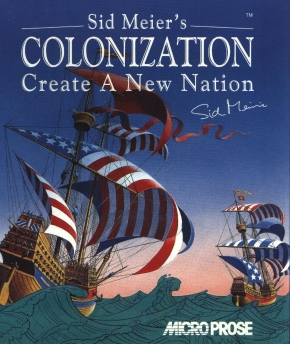
Sid Meier's Colonization is a video game by Brian Reynolds and Sid Meier. It was developed by MicroProse's Chapel Hill development studio and was released in 1994. It is a turn-based strategy game themed on the early European colonization of the New World, starting in 1492 and lasting until 1850. It was originally released for DOS, and later ported to Windows 3.1 (1995), the Amiga (1995), and Macintosh (1995). American video game publisher Tommo purchased the rights to this game in 2015 and digitally published it through their Retroism brand.

Railroad Tycoon is a business simulation game series. There are five games in the series; the original Railroad Tycoon (1990), Railroad Tycoon Deluxe (1993), Railroad Tycoon II (1998), Railroad Tycoon 3 (2003), and Sid Meier's Railroads! (2006).

MicroProse is an American video game publisher and developer founded by Bill Stealey, Sid Meier, and Andy Hollis in 1982. It developed and published numerous games, including starting the Civilization and X-COM series. Most of their internally developed titles were vehicle simulation and strategy games.

Sid Meier's Civilization III is the third installment of the Sid Meier's Civilization turn-based strategy video game series. It was released in 2001, and followed by Civilization IV. Unlike the original game, Civilization III was not designed by Sid Meier, but by Jeff Briggs, a game designer, and Soren Johnson, a game programmer.
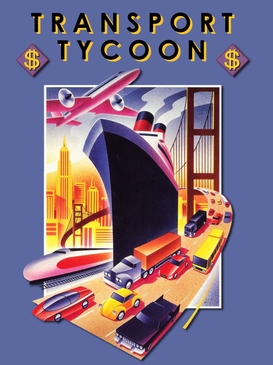
Transport Tycoon is a city-based pixel video game designed and programmed by Chris Sawyer, and published by MicroProse on 15 November 1994 for DOS. It is a business simulation game, presented in an isometric view in 2D with graphics by Simon Foster, in which the player acts as an entrepreneur in control of a transport company, and can compete against rival companies to make as much profit as possible by transporting passengers and various goods by road, rail, sea and air.

Sid Meier's Pirates! is a video game created by Sid Meier for the Commodore 64 and published by MicroProse in May 1987. It was the first game to include the name "Sid Meier" in its title as an effort by MicroProse to attract fans of Meier's earlier games, most of which were combat vehicle simulation video games. The game is a simulation of the life of a pirate, a privateer, or a pirate hunter in the 16th, 17th and 18th centuries. It was widely ported to other systems.

F-19 Stealth Fighter is a combat flight simulator developed and released in 1988 and 1990 by MicroProse, featuring a fictional United States military aircraft. It is the 16-bit remake of the 8-bit game Project Stealth Fighter, which was released for the Commodore 64 in 1987. It was also ported to the NEC PC-9801 in Japan only, and the DOS version was re-released on Steam distribution platform in 2015.

Sid Meier's Gettysburg! is a 1997 real-time wargame developed by Firaxis Games and published by Electronic Arts. It was designed by Sid Meier, and followed by Sid Meier's Antietam! in 1999.
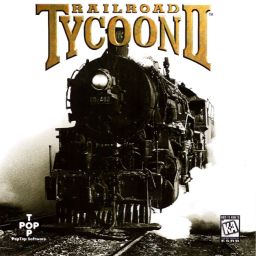
Railroad Tycoon II is a business simulation video game in the Railroad Tycoon series developed by PopTop Software and published by Gathering of Developers. It was released for Microsoft Windows, Mac OS, PlayStation and Dreamcast
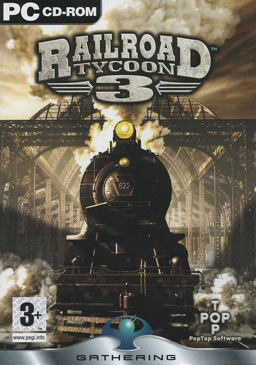
Railroad Tycoon 3 is a video game, part of the Railroad Tycoon series, that was released in 2003.

Sid Meier's Antietam! is a real-time computer wargame designed by Sid Meier, the co-founder of Firaxis Games, then released in December 1999. It is the prequel to the 1997 Sid Meier's Gettysburg!.

Sid Meier's Railroads! is a business simulation game developed by Firaxis Games on the Gamebryo game engine that was released in October 2006 and is the sequel to Railroad Tycoon 3. Although Sid Meier created the original Railroad Tycoon, subsequent versions were developed by PopTop Software. Railroads! was the first game in the series since the original to have direct input from Sid Meier himself. After a visit to Miniatur Wunderland in Hamburg, Germany, Meier was inspired to reinvent his original creation. A version for the Mac OS X was published by Feral Interactive on November 1, 2012, under the latter's Feral Legends label. A mobile version was released in April 2023.
Civilization is a series of turn-based strategy video games, first released in 1991. Sid Meier developed the first game in the series and has had creative input for most of the rest, and his name is usually included in the formal title of these games, such as Sid Meier's Civilization VI. There are six main games in the series, a number of expansion packs and spin-off games, as well as board games inspired by the video game series. The series is considered a formative example of the 4X genre, in which players achieve victory through four routes: "eXplore, eXpand, eXploit, and eXterminate".
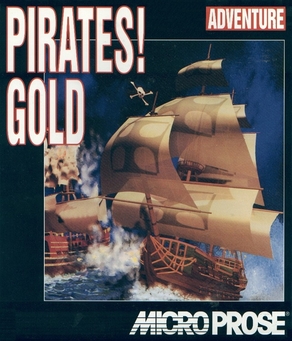
Pirates! Gold is a 1993 computer game, a remake to Sid Meier's 1987 release, Sid Meier's Pirates!
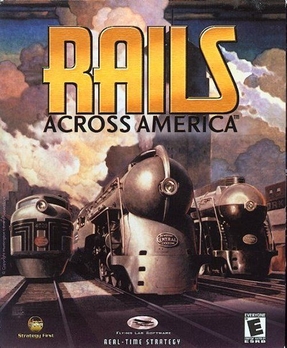
Rails Across America is a railroad simulation game released in late 2001 by developer Flying Lab Software and publisher Strategy First. It received generally positive reviews. Though no official expansions have been released, a rudimentary map-editing tool was made available to the player community.

Elite Plus is a 1991 video game published by Microplay Software.
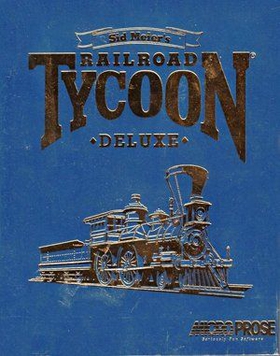
Sid Meier's Railroad Tycoon Deluxe is part of the Railroad Tycoon series, and was released in 1993.




















